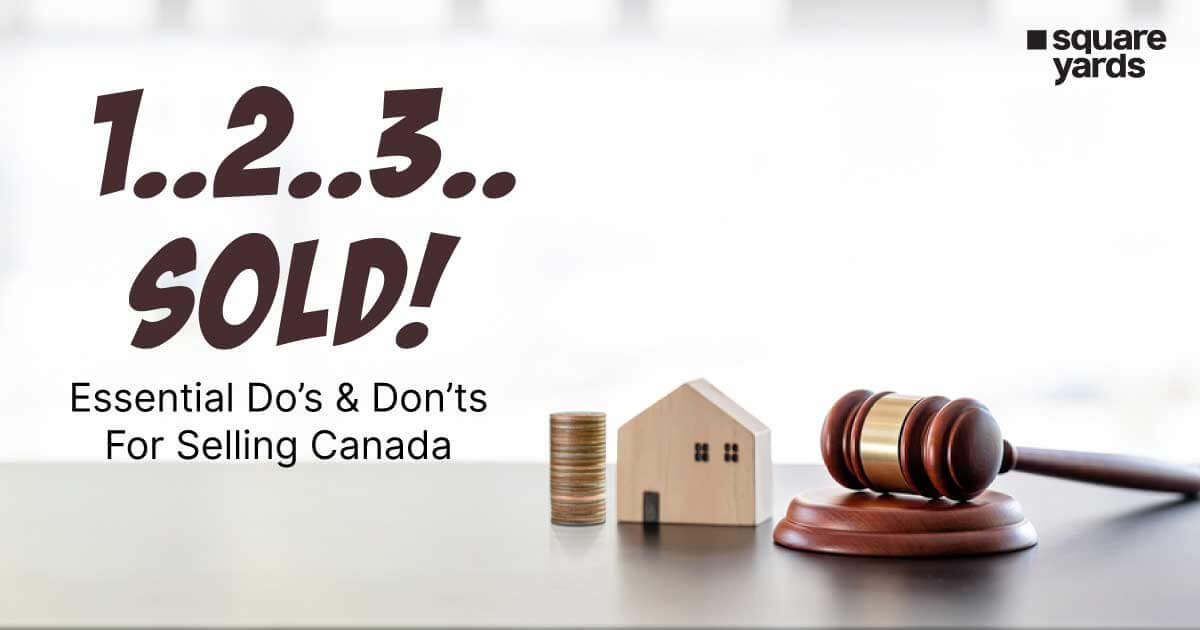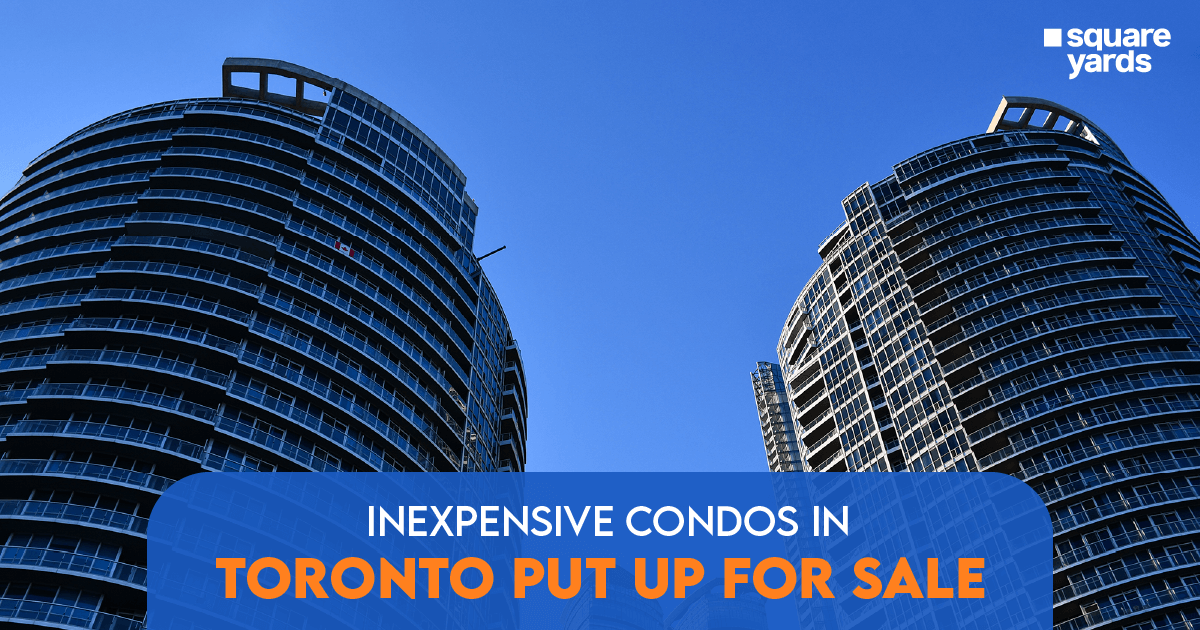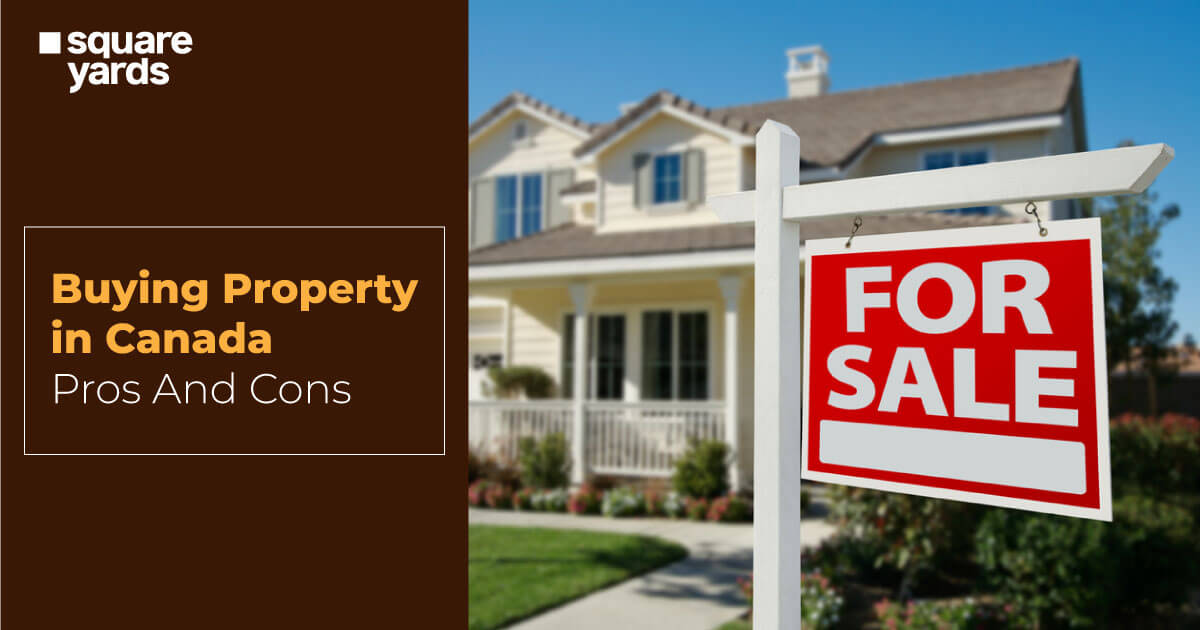Property for sale in Canada can be time-consuming and challenging. The experience can get a lot emotional too if you have lived at the place for a long time. Many people, especially first-time property sellers rely on real estate agents to manage everything. Others choose to perform every single step on their own. But no matter which method you select, it’s to become familiar with the selling process. There’s more to it than just signing papers. As a property owner, you have an integral role to play in preparing your property for the Canadian market. From determining the selling price to transferring ownership, you will be actively involved in the process.
How Do You Want To Sell the Property?
As mentioned above, there are two ways to sell a property – by yourself or through a realtor. The latter, however, can offer a lot of advantages:
-
- Suggest the right time to sell
- List your property on multiple platforms to make it reach a wider audience
- Recommend tricks to increase the property value before you sell it (highly advantages for those putting a commercial property for sale)
- Make all the viewing and open house arrangements
- Handle paperwork
Appointing a Real Estate Agent – 4 Things to Remember

The realtor has a huge hand in the success or failure of your property sale. Therefore, it is vital to hire that person carefully. Aside from experience, you need to bear many other things in mind. This includes:
-
- Communication – Opt for an agent who will understand your expectations with regard to selling the property. Make sure the agent knows your language and is able to communicate with you at your preferred time, schedule and mode. (Text, Call, Email, etc).
- Knowledge – The agent should be familiar with the local market and areas where your property is located. Let’s say you put up a waterfront property for sale Ontario. By hiring an agent who works primarily in Ontario and nearby areas, your chances of finding the right candidate to sell your property will increase.
- Range of Services – As a seller, you will depend on your real estate agent’s skills and contacts to prepare your investment property for sale. You need to check what services the realtor offers and ask if they are included in the commission.
- Technology – We are living in a digital era which means we now rely on videos calls, e-signatures and digital documents. Make sure your realtor is upgraded with the latest technologies too. It simplifies the sale process and reduces the need for attending face-to-face meetings.
Selling Property Without an Agent – Things To Do
If you’ve taken the decision to sell your property without an agent’s assistance, it’s absolutely fine. You do not always need a realtor to get a good deal. But you’ll have to be a little more careful with the steps you take. Research on properties that were sold recently and are currently on the market. It will help you determine the right selling price. Many people don’t know that the agent’s commission is included in the total cost of most properties. Since you do not have an agent, you may as well get a discount on such properties.
You will be responsible for marketing the property and getting it listed on multiple platforms. The one negotiating the sale with the buyer’s agent, something that is both stressful and time-consuming. Thus, we advise you to hire a real estate attorney to handle the finer details of the transaction. And don’t worry, the attorney’s fees are not too high, you will still save a lot of money. You may however require paying 1-3% of compensation to the buyer’s agent.
Non-Residents Selling Property in Canada

Things are a little different for non-residents selling property in Canada. Besides understanding the tax implications, you need to keep the following points in mind:
-
Know the Withholding Tax Implications
There are some tax implications for non-residents planning to sell property in Canada. They require remitting withholding taxes of the selling cost at 25% for rental properties and remit to the CRS. The lawyer takes care of all this, but you need to be aware of it too.
-
- For Instance
If you are non0-resident planning to list property for sale Vancouver island for 200,000 CAD, the original cost being 160,000, the withholding tax would be 25% 0f 200,000 i.e. 50,000 CAD. This amount will be remitted to the CRA. If the property is only a residential property (not a rented out property), the percentage will increase from 25 to 50% of the selling price. The lawyer will remit the withholding amount to the CRA at the end of the next month the property was purchased. This means if the property was purchased in September, the end of October will be the remittance due date.
-
Minimise Withholding Taxes
Non-residents can minimize their withholding taxes by filing a Clearance Certificate (Section 116) before the sale’s closing date. Make sure you file it within 10 days of the sale completion. They can reduce the tax from 25% (selling price) to 25% (net capital gain).
-
- For Instance
Let’s say you are a non-resident who has listed a commercial property for sale Toronto for 150,000 CAD. The original cost of the property was 100,000 CAD, so the net capital gain is 50,000 CAD. Now, the withholding tax would be 112,500 CAD (25% of 40,000 CAD). After the CRA approves the Clearance certificate (Section 116), your (the non-resident seller’s) representative will be approached. The lawyer will then send the patent to the CRA. And once the payment is received by the CRA, they will issue the certificate to your representative and release any outstanding funds accordingly.
-
Plan in Advance
The Clearance Certificate (Section 11) can take up to 6-8 weeks to completely process. It is important that you plan out a realistic timeline for your property’s sale.
-
- For Instance
You (a non-resident) have a property in Canada that is ready to be sold and want to reduce your withholding taxes. The original cost of the property was 100,000 CAD and you are expecting to sell the property for 150,000 CAD. The objective is to avoid withholding 37,500 CAD of tax which is the selling price of 150,000 CAD x 25% but instead 12,500 due to the Section 116 section, which is 150,000 CAD minus 100,000 x 25%. With the help of a tax accountant, you will now file a Section 116 Clearance certificate before the sale’s closing date. Your lawyer will hold on to 25% of the selling price until the certificate is approved by the CRA. As soon as it is approved and received by your representatives, the lawyer will release the funds above the limit of 25% of the net capital gain. You will then file a Section 117 income tax return to further minimize the taxes and receive a refund.
-
Reduce your Liabilities as a Buyer!
As a buyer, you need to have a copy of the clearance certificate. This certificate is presented before releasing funds to the seller. Although your lawyer will handle all of this for you, it is better to have knowledge about it. The clearance certificate protects the buyer from possible tax liabilities.
Fee for Selling Property in Canada

A lot of people choose to refinance their mortgages in order to get a low interest rate. It is a great financial solution but you need to consider the costs associated with it first.
Refinances are of two kinds:
-
- within your term
- end of your term
Choosing to refinance within your term means a lower mortgage rate and no equity. Refinancing at end of the term allows to to access equity. There are multiple fees involved in both of the refinance processes.
Take a look at this table to get some idea about it:
| Early Breaking Mortgage Term | Refinancing at end of term | |||
| Leaving /Without lender | Choosing the same lender | Leaving /Without lender | Choosing the same lender | |
| Penalty for Mortgage Prepayment | Yes | Yes | No | No |
| Mortgage Discharge Fee | Yes | No | Yes | No |
| Registration fee for Mortgage | Yes | Yes | Yes | Yes |
| Legal Fees with a standard mortgage | Yes | Yes | Yes | Yes |
| Legal fees with a collateral mortgage | Yes | No | Yes | No |
Avoid These Mistakes When Selling Your Home
When selling a property for the first time, people tend to make mistakes. Here are some of them you should know about:
-
Setting an Unrealistically High Price
It doesn’t matter whether you are selling a property on your own or through an agent, it is crucial to set the right price. Conduct a competitive market analysis to determine a fair price for your property. An analysis is a great way for buyers and sellers to understand the current price trends. As an owner, you may think your property is worth more but you cannot just put a price on it without comparing it with other properties in your area. Keep in mind that overpriced properties don’t sell. According to a recent survey, more than 70% of realtors agreed that overpricing is the most common mistake that sellers make. It’s okay to set a low price because it has higher chances to generate offers. You can bid the price up to the property’s real value. Under-pricing a property is an amazing strategy to drive more attention. And you always have the option to decline offers that seem too low.
-
Expecting the List Price
List or asking price is the amount of money that the seller is looking to get for the sale of their property. As a seller, you need to know that a smart buyer would want to negotiate with you. To ensure a successful sale, you will have to play ball. A lot of sellers want to list their property at a price that attracts buyers while still leaving some room for buyers to negotiate. This again is an effective strategy as it makes the buyers think they are getting a good value whilst allowing you to get the amount you want. The final sale will depend on various other factors and not just the pricing strategy. This includes the current state of the market, the location of your property and more.
-
Selling During Winter Months
The sale of the property depends on the time of the year. Winter is a slow time for selling properties. It is the time of year when people are busy with varied social engagements and since it’s cold, a lot of them prefer staying at home. With only a few buyers, it may take longer to sell your property. It’s better to wait than sell it at a time when chances of getting a price of your choice are difficult. We suggest listing your property when the weather starts warming up, a time when people are ready to buy a home.
-
Incomplete Listing
Most buyers these days look for properties online. All they need to do is enter property for sale near me on the search engine and they get a list of options to choose from. With so many properties available, you need to make sure your property looks different from the rest. And how can you do that? By working on the visuals. Use high-quality pictures for sale, pictures that potential buyers can zoom into and be interested in. If you are not sure how to click such pictures, have a professional do it for you. The expert will use a wide-angle lens allowing buyers to view the property from all angles. They understand what a buyer looks for in a property and will ensure the photos catch the buyer’s attention.
Along with pictures, add a 360-degree view or video tour of the property. It enhances your property and makes it accessible to the smartphone. You need to be location-specific in your listing. On websites or portals that allow the use of custom titles, we suggest using phrases like:
-
- Lakefront Property for Sale Bc
- Property for Sale Nova Scotia
- Kelowna Property for Sale
- Property for Sale Manitoulin Island
- Vancouver Property for Sale
- Property for Sale Ottawa
- Canmore Property for Sale
- Etc (depending on your property’s location)
Using the exact location in the listing title always works for the seller. The buyer gets a clear idea from the title itself. We’re living in a digital area, working on things like these is important. It improves your chances of getting more offers and makes your listing look genuine in the eyes of the buyer.
-
Not Using Insurance
For any seller, having insurance is highly essential. It protects you from damages in case the viewer gets into an accident. Listen to your lender if they ask you to carry a homeowner’s insurance policy. You need to ensure there are low chances of obvious hazards at your property. You need to keep the kids of potential buyers away from the pool and don’t forget to get your pets out of the house during showings.
-
Trying to Hide Problems
Does your property have any problems and you are hiding them? If yes, it’s a bad move. Hiding problems leave a wrong impression on the buyers. Work on the issue instead of hiding them. We recommend fixing them before putting a listing and price the property accordingly. You can list the property at its original price and give the damage fixing amount to the buyer.
Key Point: Not fixing the problem in advance will reduce your chances of getting offers from a fair number of buyers. Contact your home and get it inspected before listing it. You won’t have to deal with any costly surprises when the buyer inspects it. Many states have disclosure requirements. If your area has them too, disclose all the known problems to the buyers directly. Even if there are no disclosure rules, you should disclose those issues to the buyer to avoid any misunderstandings.
-
Not Preparing to Sell
Sellers who do not prepare their property are throwing money down their drain. You do not need a realtor to help you with preparation, you can do a lot of stuff on your own. Failing to prepare, clean and stage your property can affect your sales price. It prevents you from getting any sales at all. Do not ignore minor issues such as a broken faucet or doorknob. If you don’t. They might make the buyers believe that there are bigger problems that you may not have dealt with either. Talk to an agent or friend, someone with a fresh pair of eyes who can point out problems in and around your property. Your familiarity with the property may immune you to the trouble areas but someone who hasn’t been there will be able to spot them immediately.
-
Dealing With Unqualified Buyers
One of the best ways to ensure that you are dealing with qualified buyers is by asking them for their mortgage pre-approval letter or POF. It gives you a clear understanding of whether or not they have the money for the property. Once you have the confirmation that the buyer can afford the property, you can sign the deal without any worries.
Conclusion
Selling a property in Canada requires an immense amount of patience. You need to be prepared both financially as well as mentally to deal with all sorts of scenarios. Your property may sit on the market for longer than you expect. If you cannot find a buyer in the time you anticipated, don’t worry about it. Be sure to avoid the mistakes mentioned above to ensure a successful sale. If you have additional concerns or doubts, let us know. We’d be happy to address them.
Frequently Asked Questions (FAQs)
To sell land in Canada, you need to keep the following points in mind: – Find a real estate agent/company or do it yourself. – Prepare your property for sale – Talk to or hire a lawyer to handle the legal requirements related to property selling – Go through different marketing channels – Finalize the cost of selling your property – Understand the capital gains tax
Yes, foreigners can buy property in Canada. The Canadian real estate market is not limited to its residents only, it goes beyond its borders and allows non-residents to purchase property too. This includes investors, expats and other international citizens who are planning to live in Canada for the long term.
Not really. It is believed that Canada is one of the major real estate markets in the world. Buying a home in this country is largely unaffordable for an average individual. There are certain regions where properties are more budget-friendly than others. How can I sell land in Canada?
Can foreigners buy property in Canada?
Is the Canadian real estate market cheap?











